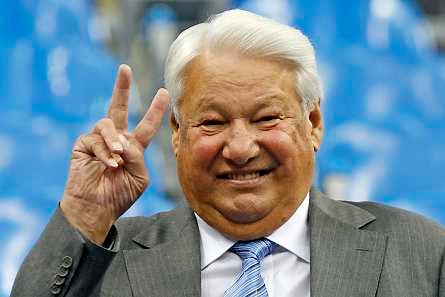Boris Yeltsin, a prominent figure in Russian history, served as the first President of the Russian Federation from 1991 to 1999. Born on February 1, 1931, in the village of Butka in the Sverdlovsk region, Yeltsin’s political journey would leave an indelible mark on the course of Russia’s transition from communism to a market economy.
Yeltsin began his political career as a Communist Party member and rose through the ranks to become the First Secretary of the Moscow Communist Party in 1985. However, he soon developed a reputation for his outspokenness and reformist views, which put him at odds with the conservative elements of the Soviet establishment.
In August 1991, Yeltsin played a pivotal role in thwarting a coup attempt against Soviet leader Mikhail Gorbachev. Standing on a tank outside the Russian White House, he rallied public support and successfully defended the nascent Russian democracy. This defining moment catapulted him to national and international prominence.
During his presidency, Yeltsin faced numerous challenges. He initiated economic reforms aimed at transitioning Russia from a centrally planned economy to a market-oriented one. However, these reforms, known as “shock therapy,” led to a severe economic downturn and a rise in social inequality, causing widespread hardship among the population. Yeltsin’s tenure also witnessed a decline in living standards, rampant corruption, and the emergence of powerful oligarchs.
Yeltsin’s commitment to democracy, though wavering at times, played a crucial role in preserving Russia’s democratic institutions. He oversaw the drafting and adoption of a new constitution in 1993, which granted greater political rights and established a presidential system. However, his presidency was marked by political turbulence, including clashes with the parliament and a controversial military intervention in Chechnya.
In 1999, Yeltsin resigned, leaving Vladimir Putin as his chosen successor. Despite his flaws and the mixed legacy of his presidency, Yeltsin’s contributions to Russian history cannot be overlooked. He played an instrumental role in dismantling the Soviet Union, promoting democratic values, and paving the way for a new era in Russian politics.
Boris Yeltsin passed away on April 23, 2007, leaving behind a complex and contested legacy. His leadership, marked by boldness and controversy, continues to shape Russia’s political landscape and the ongoing debate about the path the country has taken since the collapse of the Soviet Union.
newshub




Recent Comments